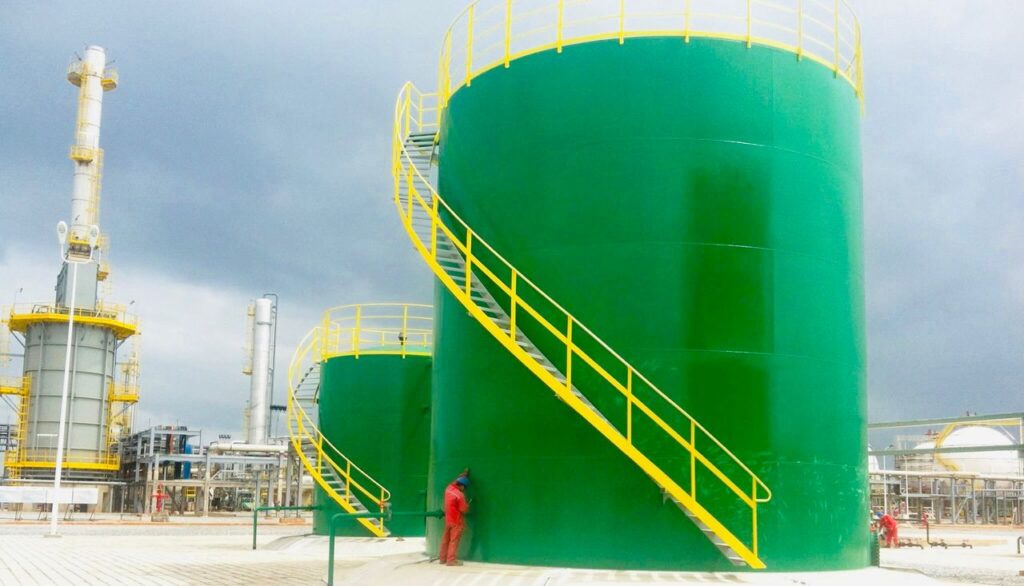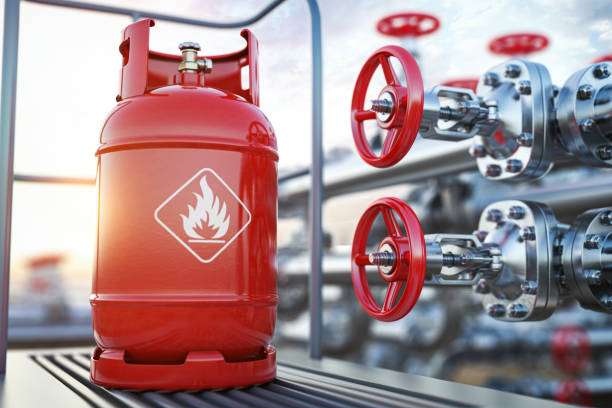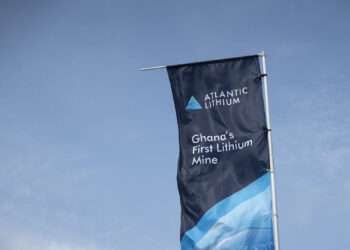The Government of Ghana is taking decisive steps to revamp the country’s downstream petroleum sector, with an urgent focus on operationalizing the Tema Oil Refinery, expanding gas infrastructure, and revitalizing local cylinder production.
The Minister for Energy and Green Transition, Hon. John Abu Jinapor, disclosed a comprehensive reform agenda aimed at improving efficiency, accountability, and energy security.
The Minister described the state of the Tema Oil Refinery (TOR) as “a national concern,” noting that years of neglect had left the facility nearly dormant.
The government has commissioned a Turnaround Maintenance Team under new management to restore TOR’s operational capacity.
“As of December 2024, the refinery’s debt had surged to $517 million, up from just $3.5 million when the previous administration took over.”
Hon. John Abdulai Jinapor, Minister for Energy and Green Transition

Hon. Jinapor cited mismanagement and lack of strategic investment for the alarming accumulation of debt and highlighted the refinery’s failure to publish audited accounts since 2019.
To address this, auditors have been engaged to assess the financials and submit their findings to the State Interests and Governance Authority (SIGA) for further action.
Despite the grim financial state, the Minister expressed confidence in the refinery’s future. He noted that the new leadership is funding the refinery’s restart using internally generated funds (IGF), a strategy he believes will ensure operational independence and fiscal discipline.
“We encourage the management to be bold and proactive. This is not just a financial recovery, it’s about restoring public trust.”
Hon. John Abdulai Jinapor, Minister for Energy and Green Transition
Progress on Second Gas Processing Plant

On the gas infrastructure front, significant milestones have been achieved toward establishing a second gas processing plant, a cornerstone of Ghana’s energy transition agenda.
Hon. Jinapor confirmed that the Implementation Committee has completed its preliminary work and submitted its final report to the Steering Committee at the Ministry.
“We are on track, and in the coming months, a detailed roadmap will be released outlining timelines and investment frameworks.
“Our goal is to usher in a gas-to-power era where most of our thermal plants will rely on domestic gas sources.”
Hon. John Abdulai Jinapor, Minister for Energy and Green Transition
Ghana Gas, the country’s leading gas transmission utility, currently handles about 45% of the domestic gas market. However, the Minister criticized the company for its failure to expand infrastructure over the past eight years.
“Not a single kilometer of pipeline has been added during that time. This is not acceptable.
“As Minister, I will enforce strict adherence to their core mandate, expand the network and invest wisely in infrastructure that benefits Ghana.”
Hon. John Abdulai Jinapor, Minister for Energy and Green Transition
Local Cylinder Production Push

The government’s reform vision also extends to the Ghana Cylinder Manufacturing Company (GCMC), a state-owned enterprise with aging machinery dating back to 1998.
Hon. Jinapor announced that a retooling initiative is underway to modernize equipment and align production with global standards.
“Our objective is clear; we want to produce cylinders locally and cut down on imports.
“We are in talks with Ghana Commercial Bank to secure a facility for this retooling project, and Ghana Gas has already contributed financially toward this initiative.”
Hon. John Abdulai Jinapor, Minister for Energy and Green Transition
The Ministry is also drafting a local content policy that will mandate all cylinder sizes used in Ghana to be sourced domestically once production capacity is adequate.
Jinapor’s remarks indicate a significant policy shift in how Ghana manages its downstream petroleum assets and local energy manufacturing.
From TOR’s rehabilitation to the reindustrialisation of Ghana Cylinder and the aggressive expansion of gas infrastructure, the Ministry’s strategic focus is unmistakably aimed at self-sufficiency, fiscal prudence, and sustainable growth.
READ ALSO: Ghana Fire Service Records Major Progress Amid Resource Constraints























